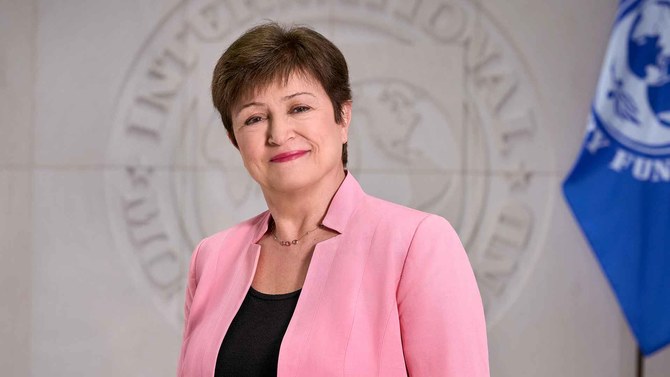
World leaders will convene in New York, on Sept. 19, for the UN General Assembly’s annual high-level session at a time of enormous and unprecedented challenges for the global community, making this year’s gathering a highly anticipated affair. Following soon after will be the annual meetings of the International Monetary Fund and the World Bank in October as well as the COP27 Climate Change Conference in Cairo, Egypt, and the G20 summit in Bali, Indonesia, which will occur a month later.
On their agendas will be an array of assorted threats, from the conflict in Ukraine that has severely dented international diplomacy to an irremediable pandemic, cumulative disruptions of worsening climate change, intensifying great power competition, and a global economy facing generalized stagflation.
Coalescent crises such as these are not a new phenomenon to a nearly 80-year-old global order established after the Second World War in which the UN has continued to play a pivotal, expansive role. What is “new,” however, is how years of inaction, inadequate responses, mistimed interventions and outright oppositional diplomacy have created fertile conditions for isolated challenges to morph into today’s threat multipliers that are themselves on the verge of confluence. Their exponential ripple effects are already adding new dimensions and complexities to a range of woes across the globe, dooming prospects for multilateralism at a time when the world is desperately in need of it.
The ensuing chaos is cementing doubts that there is little remaining capacity or agency at the highest levels to, for instance, create the space for renewed cooperation and, ultimately, restore confidence in international institutions and their ability to rise and meet the moment. In addition, this suffocating pessimism is also partly fueled by a stubborn resistance, particularly within the UN Security Council, to self-reflect and acknowledge fundamental vulnerabilities hobbling the organization’s ability to act decisively to pre-empt crises or mount effective interventions to minimize inevitable disruptions. Naturally, the international community is thus sabotaging itself by repeatedly rebuffing calls for much-needed reforms to make global forums more responsive, inclusive, adaptable and resilient.
Instead of subscribing to transformative engagement better suited to addressing today’s multifaceted challenges that demand more cooperation, not less, what we have now are organizations relegated to merely managing chaos. Those that were once effective arbiters and fierce promoters of collective action — to address shared threats or tap into mutually beneficial opportunities — are increasingly relegated to mopping up after crises instead of tackling root causes. Worse yet, a fragmented global landscape, further divided by the Ukraine debacle, is making it more difficult to create crucial alignments on even the lowest-hanging fruits. The UN Security Council, for instance, is struggling to issue joint statements on a range of priorities and failing to muster sufficient support for the appointment of envoys to oversee the UN’s mandates or police its sanctions, thus hampering de-escalation efforts, humanitarian interventions and conflict mitigation.
The next 12-24 months will be highly unpredictable, necessitating concerted efforts on an unprecedented scale by global institutions like the UN.
Hafed Al-Ghwell
On climate change, successive summits have failed to secure guarantees for funding to help the developing world — already experiencing the debilitating effects of a warming planet — embark on comprehensive transformations and meet their climate obligations. Meanwhile, there is little indication that the upcoming G20 summit will strongly urge coordinated action on inflation that has so far pushed millions back into poverty or an easing of the debt burden of middle- and low-income countries still struggling to recover from the pandemic. The latter, in particular, has pushed a few developing countries to the brink, yet the preferred “solution” for the IMF and World Bank remains contractive structural adjustment programs that demand austerity in economies already under significant strain.
It may seem hopeless and only a matter of time until an irredeemably broken, increasingly irrelevant global order, devoid of credibility, finally crumbles. However, there is still hope, not for its sake alone but derived from the global community’s resilience and “little victories,” such as brokering a deal to export Ukrainian grain as well as the facilitation of Russian agricultural exports hit by sanctions. In addition, the Security Council’s successful “compartmentalization” of disputes among its Permanent Five, or P-5, has allowed the perennially quarrelsome body to issue multiple resolutions, extending mandates on crucial peacekeeping interventions and mediations in Africa and the Middle East. Even at the worst of the Ukraine conflict, the Security Council has managed to avoid the usual pitfalls that trip up collective action on mutual interests — a strategy that helped the UN navigate Cold War-era paralysis by offering an avenue for rival powers to safeguard at least some of their interests and avoid diplomatic isolation.
Where the Security Council is too weak or divided to make significant headway on pressing issues, the General Assembly is now empowered to step up, thanks to an initiative that would allow it to convene and debate vetoes by the P-5. This still falls far short of the comprehensive veto reform sought by the Global South, for instance, but it is a promising development that could aid alternative alignments without necessarily undermining the Security Council’s prerogatives. Nonetheless, despite the best efforts to re-energize engagement among the General Assembly, gatherings over the next turbulent few years are likely to devolve it into a forum for perfunctory, long-winded refresher courses on UN principles rather than engaging in the forceful activism required of a force for global good as it was originally envisioned.
Looking ahead, if we set aside the Ukraine conflict, there are several other arenas where the global community will need to remain vigilant and highly engaged, including Afghanistan’s humanitarian challenges; pervasive fragilities in Libya, Syria and Yemen; strained UN-African Union relations; crumbling peacekeeping interventions in Africa; longer-term challenges like climate change; and growing distrust in international institutions. Intense geopolitical rivalries are not helping either, which risk throwing the global community into further disarray.
After all, divisive maneuvering by the US (along with the EU), China and Russia, are dooming prospects for deeper levels of cooperation that will be necessary to reverse some of the woeful trends threatening to push parts of the world over the edge. The US, for instance, is deeply conflicted about its role as a preserver of the current world order as it seeks to elevate its domestic priorities by cutting the steep financial and political costs of maintaining its “moral obligations” around the world. China, on the other hand, appears determined to remake it by transforming international institutions into vehicles for pursuing self-interested aims or mere tools for exercising hegemony well beyond its neighborhood. Russia seems hellbent on simply undermining the Western-led global order altogether in favor of transactional bilateralism between distinct spheres of influence.
What is clear to most of the world is that the next 12-24 months will be highly unpredictable, necessitating concerted efforts on an unprecedented scale by global institutions like the UN. Limited “wins” and maintaining a presence in fragile, crisis-prone areas do instill hope that, even when beset by mounting challenges, the spirit of cooperation endures — for now.
Hafed Al-Ghwell is a non-resident senior fellow with the Foreign Policy Institute at the Johns Hopkins University School of Advanced International Studies. He is also a senior adviser at the international economic consultancy Maxwell Stamp and the geopolitical risk advisory firm Oxford Analytica, a member of the Strategic Advisory Solutions International Group in Washington, and a former adviser to the board of the World Bank Group. Twitter: @HafedAlGhwell










